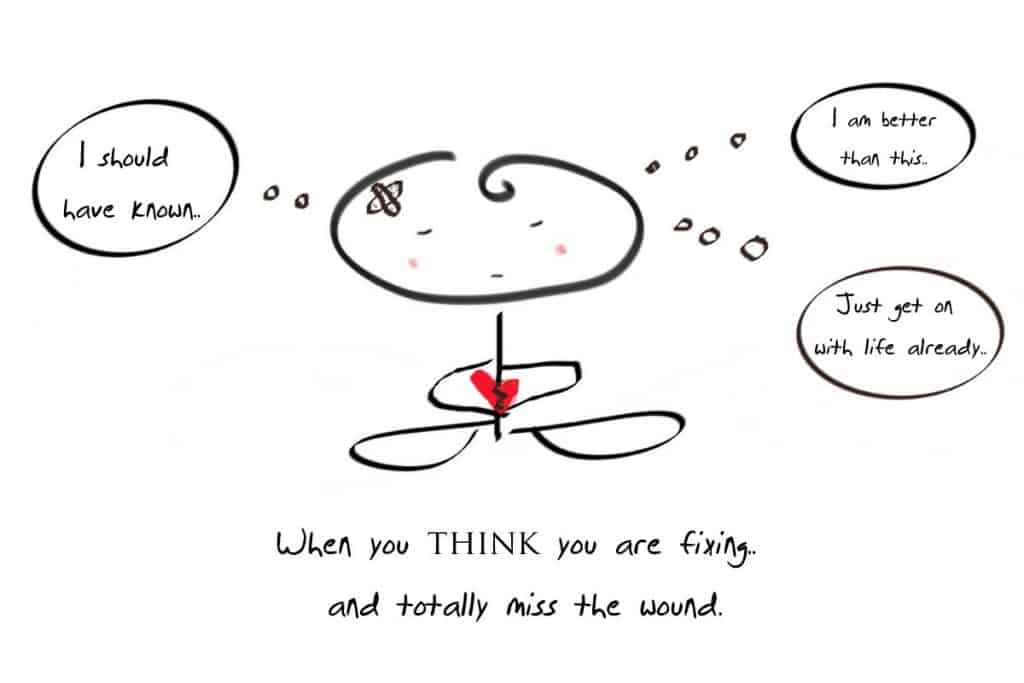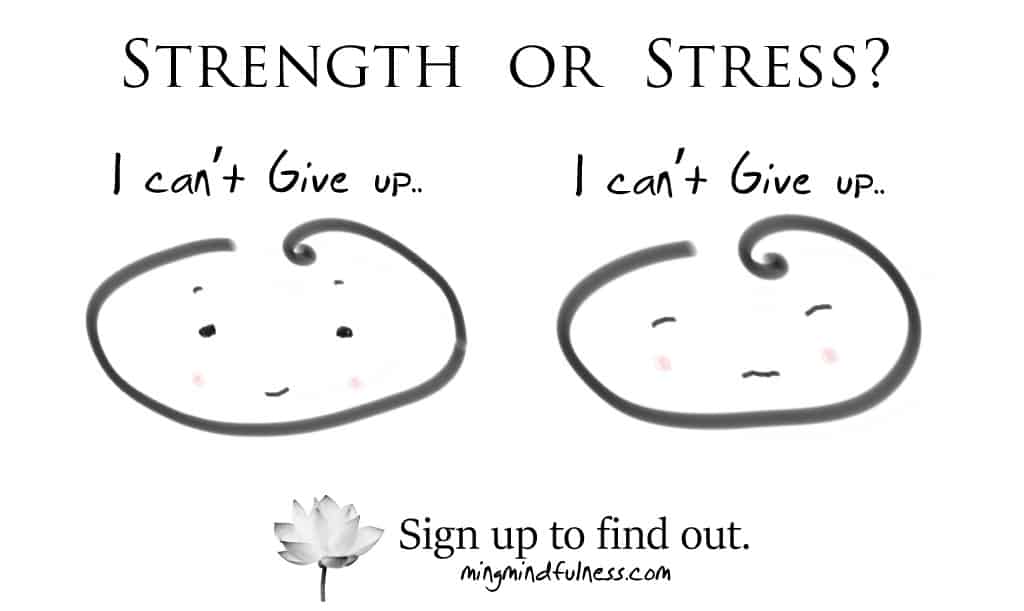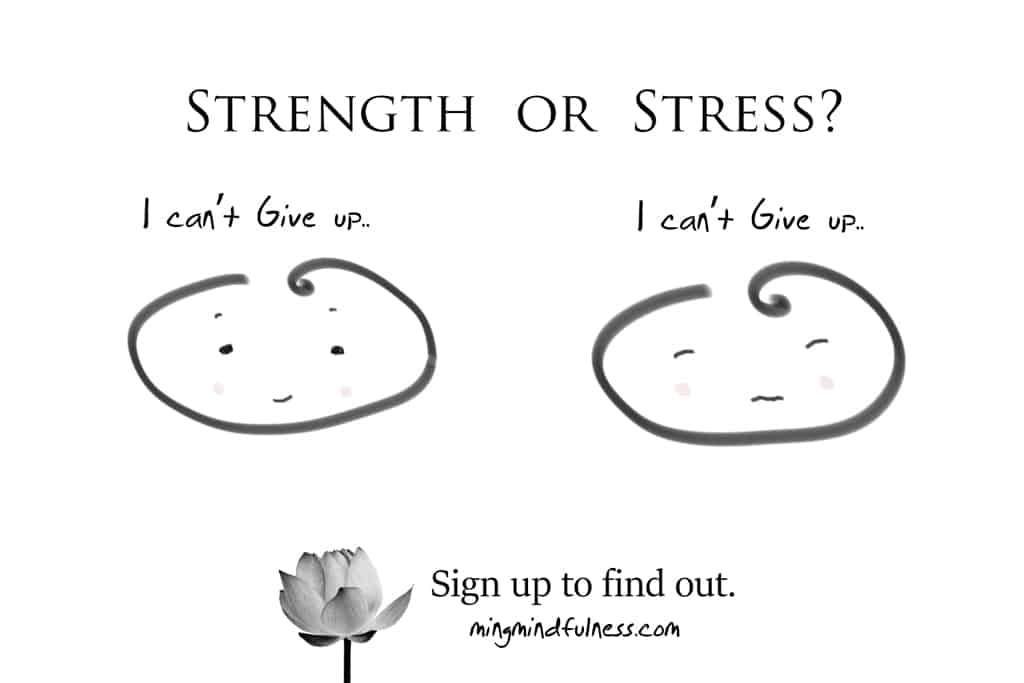
Woke up one morning and a question popped up. Why does it take so long for me to get over a mistake or a disappointment?
‘I should have known this.’
‘I should know better.’
‘I am smarter than that!’
‘Why didn’t I do this right from the start?’
Saying all these almost with a sense of arrogance.
Our ego strived to protect us from falling apart
To not make a fool of ourselves, mostly, we use logical admonishment to prevent the potential of a deeper pain. The deeper pain of admitting ‘I am a failure’ or ‘I am stupid’. It’s such a paradox that arrogance co-exist with extreme low esteem. In my ruminative mind, I could also easily convince myself that I am letting myself off the hook too easily if I tried to dispute the negative thoughts.
When thinking fails
The predicament of the human intellectual mind is that it can rile anything up. And the reason why positive thinking sometimes doesn’t work, is that you can come up with a thought to ‘fight’ a negative thought, you can also think of a thought to ‘fight’ the positive thought. All these can happen automatically.
Thinking might not work when the ‘thing’ causing you hurt is an emotion e.g. guilt, shame or disappointment or rejection.
Stop bandaging your head when the wound in your heart craves to be tended to.
Tend to the heart first
I learn something when I am sitting with the pangs of fear or guilt when an issue has gone wry, that it’s not about convincing my mind to stop thinking with more thoughts. It’s just a vicious cycle. Instead learn to see clearly the nature of our emotions.
“It takes kindness and compassionate presence to ease emotional pain.”
‘I should have known.. this is not the first time.’
Noticing these thoughts. I take my time. I place my palm at my heart, or wherever it feels tight.
And I might say to myself.
‘It really hurts.’
‘I feel it.’
‘I am here.’
‘It’s gonna be ok.’









